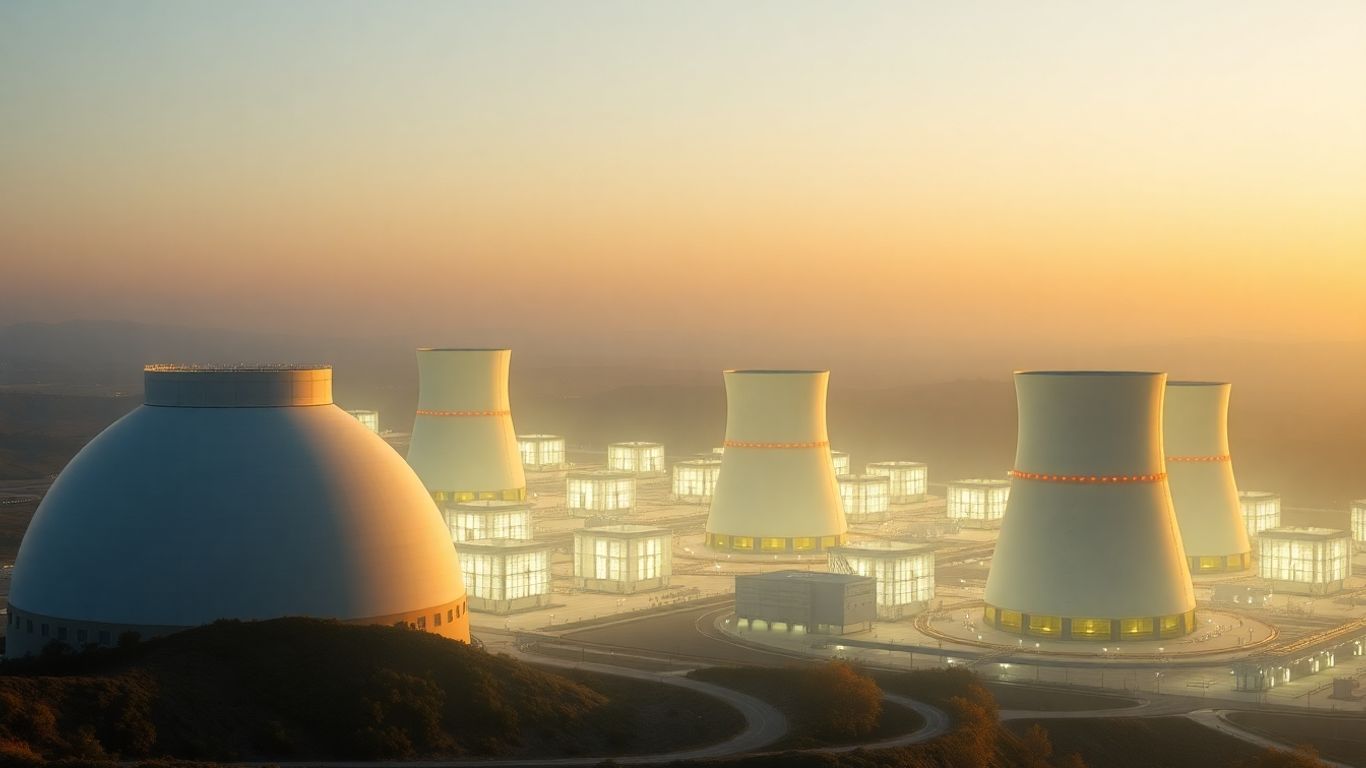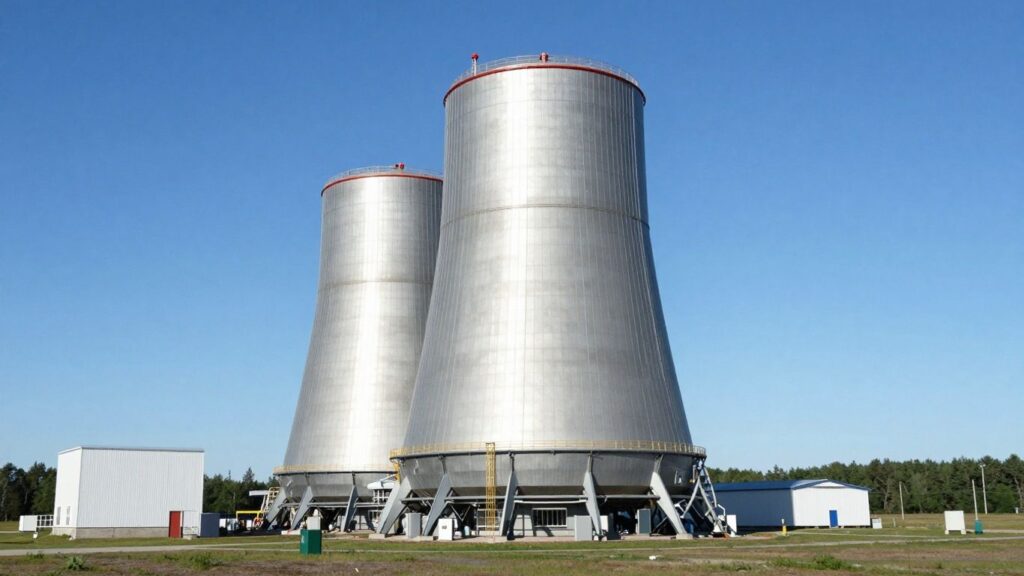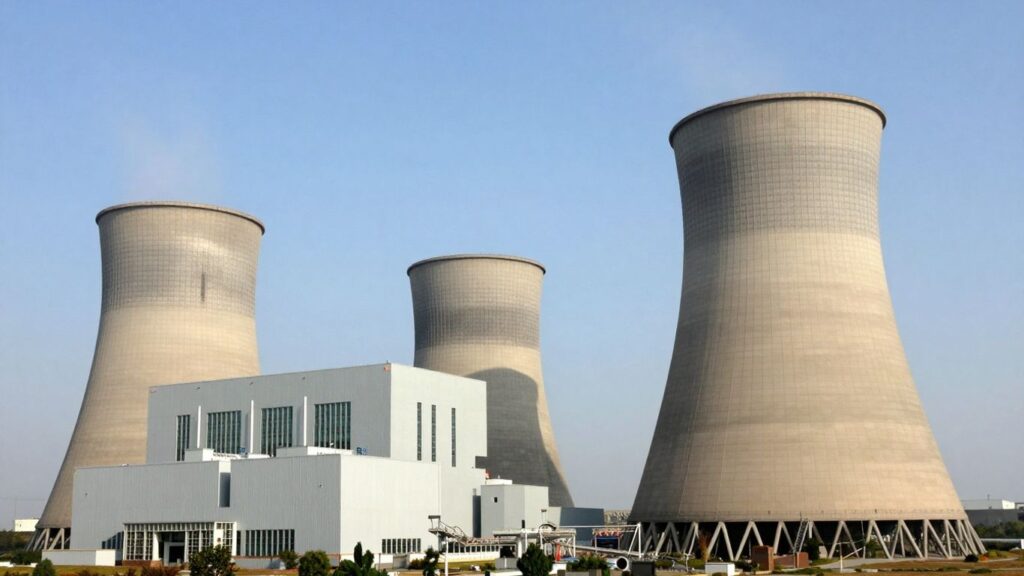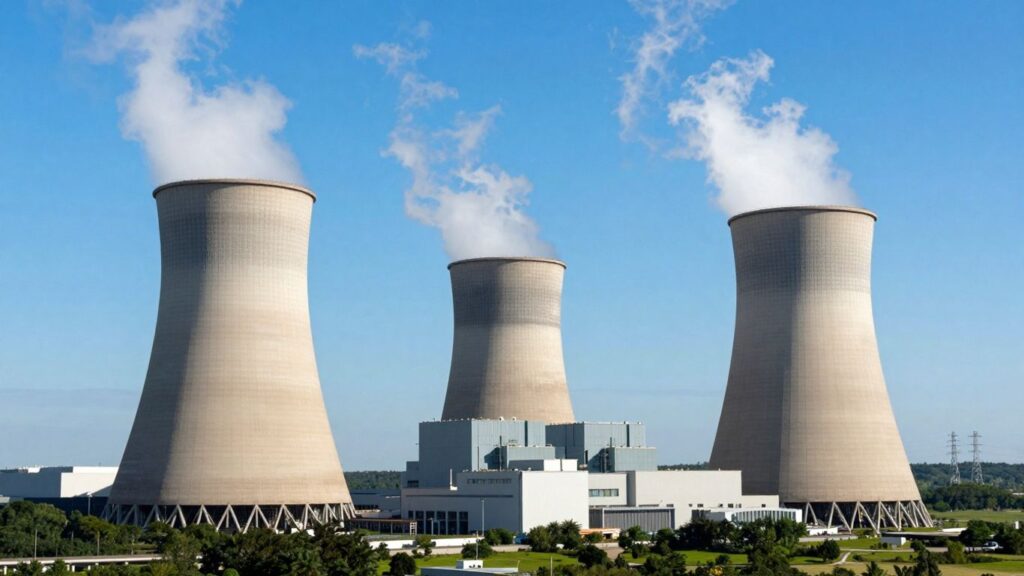The United Kingdom is poised to significantly expand its nuclear energy capacity with plans to deploy over 20 Small Modular Reactors (SMRs) and Advanced Modular Reactors (AMRs) by the mid-2030s. This ambitious rollout, largely funded by private investment, marks a pivotal moment in the UK’s pursuit of energy security and net-zero goals, with Rolls-Royce SMR leading the charge as the preferred domestic technology provider.
Key Takeaways
- Over 20 SMRs and AMRs are planned for deployment in the UK by the mid-2030s.
- Rolls-Royce SMR has been selected as the UK’s domestic SMR technology provider.
- The UK government is pledging over £2.5 billion for its SMR program.
- Private funding is a significant component, with developers confident in attracting investment.
- The US and UK are collaborating to accelerate SMR deployment and regulatory approvals.
A New Era for UK Nuclear Power
The UK government has identified Rolls-Royce SMR as the preferred technology provider for its domestic SMR program. This decision, following a two-year international selection process by Great British Nuclear (GBN), signifies a commitment to British innovation and manufacturing. The government is backing the initiative with over £2.5 billion, aiming to create thousands of skilled jobs and power approximately three million homes.
Ambitious Deployment Plans
Nuclear developers are optimistic about building more than 20 SMRs and AMRs by the mid-2030s. X-energy, in partnership with Centrica, aims to deploy up to 12 AMRs in Hartlepool, with a broader UK-wide program targeting 6GW of nuclear power. Holtec is also working on plans for advanced data centers powered by SMRs, with an estimated project value of £11 billion.
Private Investment and International Collaboration
Developers are confident in their ability to attract private funding, with some requiring visible government support to unlock investment. X-energy, for instance, has already secured over $1.5 billion in private funding. The UK is also strengthening its collaboration with the US on SMR deployment, aiming to fast-track design approvals and reduce the time from blueprint to first power.
Economic and Environmental Benefits
The expansion of SMR technology is expected to generate significant economic benefits, including the creation of thousands of highly skilled jobs and opportunities across the supply chain. Environmentally, SMRs offer a clean energy solution, contributing to the UK’s net-zero targets and enhancing energy resilience. The government’s commitment to accelerating approval times and fostering a supportive regulatory framework is crucial for realizing these ambitions.
Sources
- Nuclear developers discuss plans to build over 20 SMRs in UK by mid-2030s with private funds, New Civil Engineer.
- Rolls-Royce: Supply Chain Expansion with Nuclear Energy, Supply Chain Digital.
- UK ramps up SMR plans, Partnerships Bulletin.
- UK Picks Rolls-Royce For Domestic Small Modular Reactor Rollout, NucNet.












